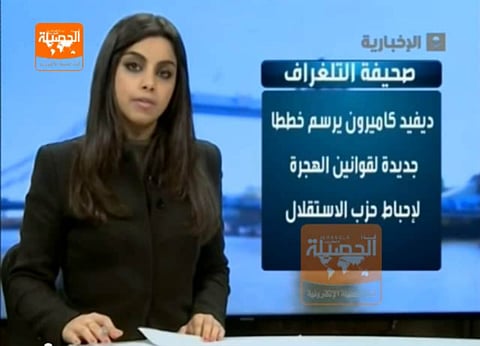Move to impose abayas for Saudi TV presenters
Shura member wades into controversy with uniform looks proposal

Manama: A member of the Saudi Shura (Advisory) Council has waded into controversy after she called for imposing a uniform consisting of the traditional coverall abaya and head dress on all Saudi women working in private television stations funded by Saudi Arabia.
Although Noora Al Adwan has succeeded in convincing the Council’s culture and information committee of the significance of her proposal, she is likely to face a formidable struggle with women who do not support her motion.
The Shura member had earlier this year come under fire after she accused Saudi women working for national television channels of not complying with the traditional Saudi attire and exaggerating their makeup, local daily Al Watan reported on Monday.
Al Adwan charged the looks of the Saudi presenters gave the wrong image about Saudi women and affected the kingdom’s international reputation.
Her remarks sparked a wave of condemnation from the Saudi TV presenters who rejected them as untrue, and saw them an unacceptable intrusion in their personal lives.
Al Adwan, seemingly mindful of similar reactions, did not include the female TV presenters on public stations in her proposal and confined it to the private sector.
The status of women in Saudi Arabia has been among the hottest and divisive issues in the kingdom in recent years, with a particularly sensitive focus on the driving ban imposed on them.
Two Saudi women could be facing trial for insisting this month to driving into the kingdom, arguing that their driving licence from a Gulf Cooperation Council (GCC) country allowed them to drive and that there was no legal text in Saudi Arabia that barred women from driving.
Last week, the possibility for women to attend sports events also came under focus after a young woman was forced out of a stadium where she was watching a football match between two local teams. The woman who was quizzed over her presence in the all-males stadium said she was not aware that women could not possibly be there.
However, politically, women have been able to secure significant success points, mainly after they were able to become members of the Shura Council.
The 150-seat Council now has 30 women who were appointed by King Abdullah Bin Abdul Aziz Al Saud in January 2013,
King Abdullah’s decree stipulated that female members had full rights and assumed all duties and responsibilities.
The king, seen as a champion of women’s rights, said the appointment was taken following consultations with a high number of religious scholars who endorsed their participation based on the country’s interest.


